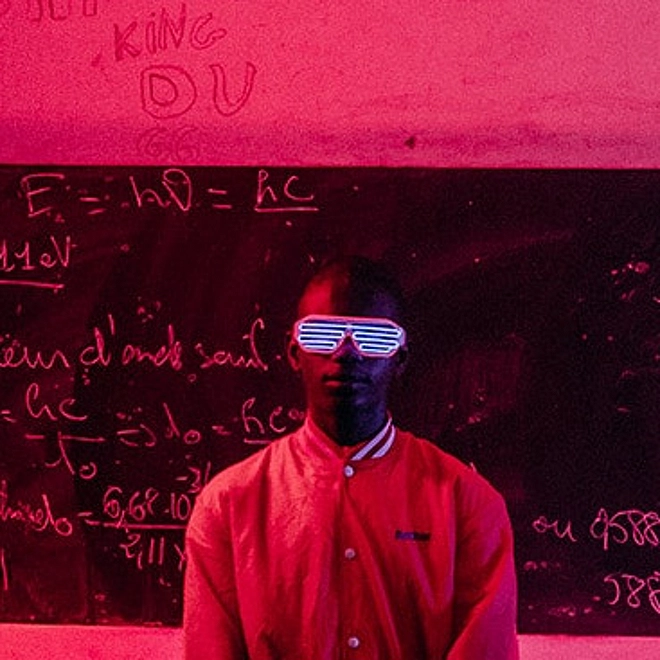Through the eyes of young leaders
Our One Young World ambassadors explore the power of business to drive impact.
At Deloitte, we’re committed to helping find solutions to some of the greatest challenges that impact our planet and society. Through our WorldImpact initiatives—Deloitte aims to inspire our people to lead in their communities and help keep our planet healthy for generations to come. One of the ways we’re doing this is by supporting and elevating the voices of our young leaders.
Deloitte’s collaboration with One Young World (OYW) develops young professionals into future leaders who can help solve the world's toughest challenges. We proudly introduce three Deloitte OYW ambassadors from around the globe: Matt Juden, Marisa Mandrell, and Grit Zwingenberger. These bright minds share their thoughts on what they learned at OYW, the power of business to drive impact, and how we can transform our lifestyles to help create better futures.

1. Can businesses operate both for profit and have a positive impact on society?
Matt: Purpose and profit historically were seen as opposing ideals. But now, with many companies shifting the narrative to one of purpose delivering profit, these two exist increasingly hand-in-hand. Much of this shift we owe to a rise in consumers’ demand for quality products that also do good. The increased prominence of initiatives like B Corp and the Better Business Act in the UK have further inspired companies to act. And the evidence supports it. The Deloitte 2023 Gen Z and Millennial Survey found that over 3 in 10 Gen Zs and millennials (39% of Gen Zs / 34% of millennials) have turned down employers that didn’t align with their values. Making up almost half the US workforce and growing, the values of these two generations are important for businesses to consider and embed. So yes, I’d say profit and societal impact are more interconnected than ever before and will continue to be even more so as time goes on.
Grit: Our expectations of businesses in society are changing, and we’re demanding more from them. Companies can—and should—move away from the goal of only maximizing profits for shareholders. Instead, they should move towards becoming companies for the people, serving society, and solving a need through their products and services.
Traditional Corporate Social Responsibility (CSR) activities, like volunteering, are important, but more is needed. There needs to be a fundamental mindset shift, with companies articulating what they stand for and then walking their talk. This and profit are not mutually exclusive.
Marisa: Generational differences are increasingly shaking up the role of the employer. With Gen Z and Millennials in/entering the workforce, they are demanding change within their organizations. Their passions are reflected in their work; therefore, social impact and profit are becoming increasingly intertwined. I agree with Grit that the two are not mutually exclusive; there is a visible opportunity to build relationships with clients while making an impact that matters in our communities. Take a moment to reflect—how can you positively impact society, while working for a global for-profit organization?

I feel like I’m making an impact that matters when I’m able to use my passion and energy to coach and guide others; and collaborating to come up with new innovative solutions to big problems.
Matt Juden
2. How can businesses positively impact society?
Matt: Multinational organizations like Deloitte have a huge opportunity to use their scale, resources, and talent to help make greater impacts on society and the world at large. The challenge is how to do this. Using Deloitte as an example, the first thing that is important to recognize is our scale and our unique ability to influence and encourage better behaviors. Be it through recommendations made to clients, criteria we set for suppliers, or policies enacted internally.
The second is to challenge existing norms and beliefs. For example, promoting greater diversity and inclusion across the organization as well as having difficult conversations with leadership and clients to encourage them to do the same.
The third is to leverage the great minds and diverse talent we have internally to answer some of society’s biggest challenges—giving time pro bono, volunteering or supporting eminence and research. These can help to create a multiplier effect, encouraging positive action across industries and beyond.

I believe one is never too young or inexperienced to start making a difference and that, no matter our age, we should continue to learn and grow. Therefore, I am supporting activities that aim to make Learning a leading priority for the Human Capital practice.
Grit Zwingenberger
3. What is the role of young leaders advocating for businesses to drive societal impact?
Grit: The biggest mistake we can make is thinking we are too small, too junior, or too unimportant to drive change. Leadership is about more than where we are in the organizational hierarchy. It is about inspiring, enabling and empowering those around us—something that our official roles should not limit. It is up to us to speak up about the societal issues we care about, be role models, and be drivers and allies.
Gen Zs and millennials make up half of the current workforce, and the Deloitte 2023 Gen Z and Millennial Survey has shown that these two generations are already advocating for change and expecting more from business leaders. Both generations strive to have a clear purpose and search for opportunities to address societal issues through work.
Thankfully, at Deloitte, our people have opportunities to get involved, get informed and make a difference through our WorldImpact initiatives. I see the role of young leaders to advocate for further change and engage and influence our stakeholders and senior management to do more as well.
Whether it is driving more sustainable choices in our projects and events, volunteering, being an ally to underrepresented groups inside and outside the organization or caring for and protecting the mental health of your team members—there are countless ways to use your voice and drive action as a young leader.

Collaboration plays a critical role in driving positive impact within our communities and organizations around the world.
Marisa Mandrell
4. How does collaboration play a part in driving impact?
Marisa: At One Young World, one of the sustainability plenary speakers left us with this quote: "If you want to go fast, go alone. If you want to go far, go together." This African proverb perfectly answers this question. Collaboration plays a critical role in driving positive impact within our communities and organizations around the world. With the increasingly complex and interconnected society that we live in today, we need to unite to try to solve some of the world’s toughest challenges. This might look like serving on a pro bono project, teaming with a colleague to organize a local beach cleanup or working with a nonprofit to support educational programs in the community.
To share a personal example: I was involved in the early days of the Practitioner Engagement team which is part of the Deloitte US Green Team Network. Collectively, we have led speaker engagements, eco-challenges, communications, and Earth Month campaigns across the US. While my focus was on communications, we wouldn’t have been able to pull it all together without the Practitioner Engagement team and volunteer support. The most impactful results come from teaming with others and leveraging our collective voices to drive change!
What’s next?
Want to hear more from Deloitte’s OYW ambassadors? Meet three other young leaders as they share their thoughts on climate change and sustainability, and stay tuned for more insights on our WorldClass initiatives.




